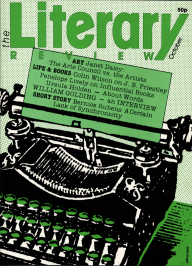Christopher Hawtree
Night & Day
‘We have already so many periodicals that one often asks oneself, is a new one required? And one always answers oneself, yes, it is. That is why periodicals begin.' It is a question which must have often been asked recently, as well as by Rose Macaulay in the first number of the weekly, Night and Day, in 1937. There is much to be said for the argument that periodicals have an inherent life-span – longevity need not be a virtue; Blackwood's prolonged senility, before it closed last year, was evidence enough of that. Night and Day lasted six months. Its demise was sad, for there was no falling off in the quality of the last issues, and there has been nothing like it since. One of its contributors, Graham Greene, has commented recently that it was the victim of 'high costs and lack of advertising support. It was nearing the rocks long before the libel action.'
Graham Greene reviewed films in most issues. These have all been reprinted, together with those for The Spectator, in The Pleasure Dome. But his review of Shirley Temple in 'Wee Willie Winkie' cannot reappear yet, and it was this that took me to the North Library of the British Museum.

Sign Up to our newsletter
Receive free articles, highlights from the archive, news, details of prizes, and much more.@Lit_Review
Follow Literary Review on Twitter
Twitter Feed
It wasn’t until 1825 that Pepys’s diary became available for the first time. How it was eventually decrypted and published is a story of subterfuge and duplicity.
Kate Loveman tells the tale.
Kate Loveman - Publishing Pepys
Kate Loveman: Publishing Pepys
literaryreview.co.uk
Arthur Christopher Benson was a pillar of the Edwardian establishment. He was supremely well connected. As his newly published diaries reveal, he was also riotously indiscreet.
Piers Brendon compares Benson’s journals to others from the 20th century.
Piers Brendon - Land of Dopes & Tories
Piers Brendon: Land of Dopes & Tories - The Benson Diaries: Selections from the Diary of Arthur Christopher Benson by Eamon Duffy & Ronald Hyam (edd)
literaryreview.co.uk
Of the siblings Gwen and Augustus John, it is Augustus who has commanded most attention from collectors and connoisseurs.
Was he really the finer artist, asks Tanya Harrod, or is it time Gwen emerged from her brother’s shadow?
Tanya Harrod - Cut from the Same Canvas
Tanya Harrod: Cut from the Same Canvas - Artists, Siblings, Visionaries: The Lives and Loves of Gwen and Augustus John by Judith Mackrell
literaryreview.co.uk